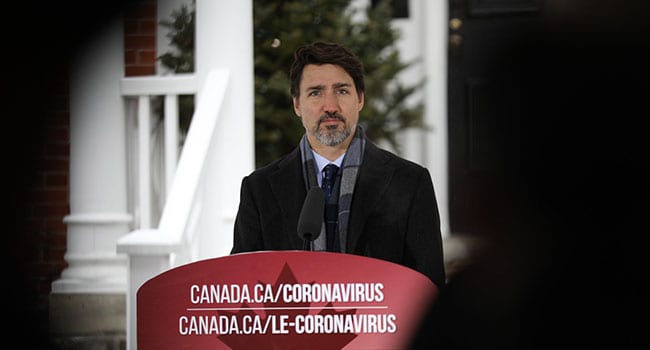By Niels Veldhuis
and Elmira Aliakbari
The Fraser Institute
After weeks of delay, the federal government finally announced its aid package for the energy sector. To say it’s underwhelming would be an understatement.

Veldhuis
More than anything, the package announced on Friday confirms that the government of Prime Minister Justin Trudeau sees one of Canada’s most important sectors as a ‘sunset’ industry.
The government’s view of the industry has been no secret. In 2017, when referring to Alberta’s oil industry, the prime minister said we need to “phase them out.”
And in 2012, when he was with the World Wildlife Fund, Gerald Butts, former principal secretary and key adviser to Trudeau, said “we don’t think there ought to be a carbon-based energy industry by the middle of this century.”
In light of this attitude, perhaps it was naive to think the government would actually provide a significant and much-needed short-term aid package.
With the sector struggling with two concurrent shocks – a major reduction in demand caused by the COVID-19 crisis and an aggressive battle for crude oil market share between Saudi Arabia and Russia – industry groups and the Alberta government were hoping for about $30 billion.
What the industry got was roughly $2.5 billion – $1.7 billion to clean up orphan and inactive wells and a $750-million emission-reduction fund, to be distributed as repayable contributions for business to invest in technologies that reduce methane pollution.
Of course, dealing with Alberta’s orphaned wells is important. But this funding will do little to help the industry stay afloat. Both initiatives seem squarely focused on fitting neatly into the government’s green agenda rather than actually helping the industry through an extraordinary crisis.

Aliakbari
Trudeau said as much in his announcement today: “Just because we’re in a health crisis doesn’t mean we can neglect the environmental crisis.”
The prime minister did say his government is working with Business Development Bank of Canada and Export Development Canada to expand credit. But he provided no details.
More than three weeks ago, federal Finance Minister Bill Morneau said the same thing, and that help was coming in just a few hours or days.
For some perspective of just how small this short-term aid package is, consider what two companies in the auto industry received from government during the 2009 recession. The federal and Ontario governments provided General Motors and Chrysler with $13.7 billion in credit in 2009, part of a package that ultimately cost taxpayers an estimated $5.5 billion. And that was for just two companies that at the time employed a combined 21,800 workers.
According to Natural Resource Canada, Canada’s energy sector employed (directly and indirectly) more than 830,000 workers including nearly 150,000 in Alberta before the downturn. Contrast $14 billion for 21,800 workers in two companies in Ontario to $2.5 billion for 150,000 workers in Alberta.
It’s also important to note that the energy sector generated more than $220 billion in annual economic activity and represented nearly 11 per cent of Canada’s economy.
Perhaps most importantly, the energy sector also contributes nearly $17 billion annually to government coffers through corporate income taxes, sales and payroll taxes, royalties and land sales.
For nearly a month, Canada’s oil and gas sector (workers, investors and entrepreneurs) has desperately needed a robust plan to restore the its confidence.
The federal government could have produced a plan to help one of Canada’s most important sectors.
It appears Trudeau just doesn’t see it that way.
Elmira Aliakbari and Niels Veldhuis are economists with the Fraser Institute.
Elmira and Niels are Troy Media Thought Leaders. Why aren’t you?
The views, opinions and positions expressed by columnists and contributors are the author’s alone. They do not inherently or expressly reflect the views, opinions and/or positions of our publication.
